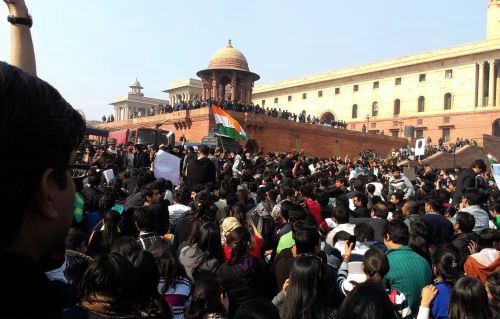By Sumeysh Srivastava


In Gadar: Ek Prem Katha, there is a nationalism-packed scene in which Tara Singh, played by Sunny Deol, is being asked to convert to Islam so that his iniquitous Pakistani father-in-law (Amrish Puri) can accept him and allow him to be with his wife and kid. In this scene, Tara Singh is okay with saying “Islam Zindabad” and “Pakistan Zindabad”, but when asked to say “Hindustan Murdabad”, he bristles with anger and reiterates that “Hindustan Zindabad tha, Zindabad hai aur Zindabad rahega”.
Now, people assume he does so because of his patriotic spirit and love for the motherland, which is perhaps so. However, an alternative theory could be that he was simply afraid of being prosecuted for sedition back home. Sedition, as given in Section 124A of the Indian Penal Code, refers to when anyone tries to bring hatred or contempt or excites disaffection towards the government.
Note that sedition refers to the government, not the country. This is because sedition was brought into the Indian legal system by the British government in 1870. It was brought in to stifle dissent against the colonial government. Bal Gangadhar Tilak and Mahatma Gandhi are just two people who were prosecuted under this law, amongst a host of others, comprising mostly of newspaper editors.
In the present day, we have seen people like Kanhaiya Kumar being charged with sedition for allegedly inciting people to shout “Bharat Tere Tukde Honge”. We have also seen sedition charges being slapped against people for supporting Pakistan during cricket matches. Recently, we have seen a bizarre case where sedition has been applied in a case involving a private media channel. This was a case in which the State isn’t even a party. Sedition has become a convenient legal tool to stifle any voice or perspective that goes against what the State perceives as nationalism or patriotism.
An act is seditious if your act results in people feeling hatred or contempt towards the government. If a person uses either spoken or written words or gestures which are aimed at encouraging people to (i) disobey the authority of the government, or (ii) resist the authority of the government. These actions should lead people to resort to violence and create public disorder. An attempt to make people disobey or resist the government through acts of public disorder or violence may also be an act of sedition.
The Supreme Court has held in various judgements that the law of sedition is only applicable when (i) a person causes violence, or (ii) a person encourages people to create violence. So, for sedition, it’s very important to make a distinction between genuine criticism of the government and statements which seek to overthrow the government.
As discussed in Romesh Thapar vs State of Maharashtra, this is a distinction that the framers of the Constitution were keen to clarify. As given in the case, the deletion of the word “sedition” from the draft Article 13(2) which finally became Article 19, which gives the right to freedom of speech, shows that mere criticism of the government was not to be regarded as a ground to restrict freedom of speech and expression, unless it could lead to issues related to public order, security and the existence of the government.
Though we are no longer ruled by the British, our government does have a colonial hangover which defines the relationship between the State and its people. The structures are still the same, and are sometimes used for the oppression of people, rather than their benefit. The presence of the armed forces in areas where people are in dispute with the State belies the idea of a democratic, responsive State.
Most worryingly, the distinction between the “nation” and the government has been blurred to the extent that any criticism of government functioning, irrespective of its merit, is seen as being anti-national, disloyal and unfaithful to the motherland. Constructive criticism of government policies, debating on the effectiveness of different State interventions should be seen as an expression of love towards the nation and signifies concern about how the nation is progressing. This cannot be sedition.
The other major issue with the law on sedition is how it is processed in the legal system. The NCRB’s Crime in India report 2016 shows that out of 34 cases of sedition reported that year, there was only one conviction, two acquittals, while 31 cases are still pending trial. In fact, between 2014 and 2016, a total of 179 cases were lodged under the sedition law.
However, by the end of 2016, no charge sheet had been filed in over 80% of cases. The trial could only begin in 10% of cases. So, in most cases, the sedition law becomes a tool of oppression, where the police don’t even file a charge sheet and people just spend time in prison. People, on whom frivolous charges of sedition have been applied, are punished with jail for a long period without a trial.
This doesn’t mean that a law on sedition has no utility today. All laws can be misused. An argument can be made that the law on sedition, if applied, as interpreted by the Supreme Court, with its recommended safeguards, does act as a bulwark around the integrity of the Indian nation and discourages elements which seek to incite violence to cause public disorder and overthrow elected governments. The problem is, this is not how the law has been historically applied. The problem is the misuse of the law by an overly sensitive government and the illegal and arbitrary actions that often accompany its application.
(The writer is a lawyer working at Nyaaya, an initiative of the Vidhi Centre for Legal Policy. Nyaaya explains India’s laws)
Originally published at www.deccanherald.com on March 1, 2019.


